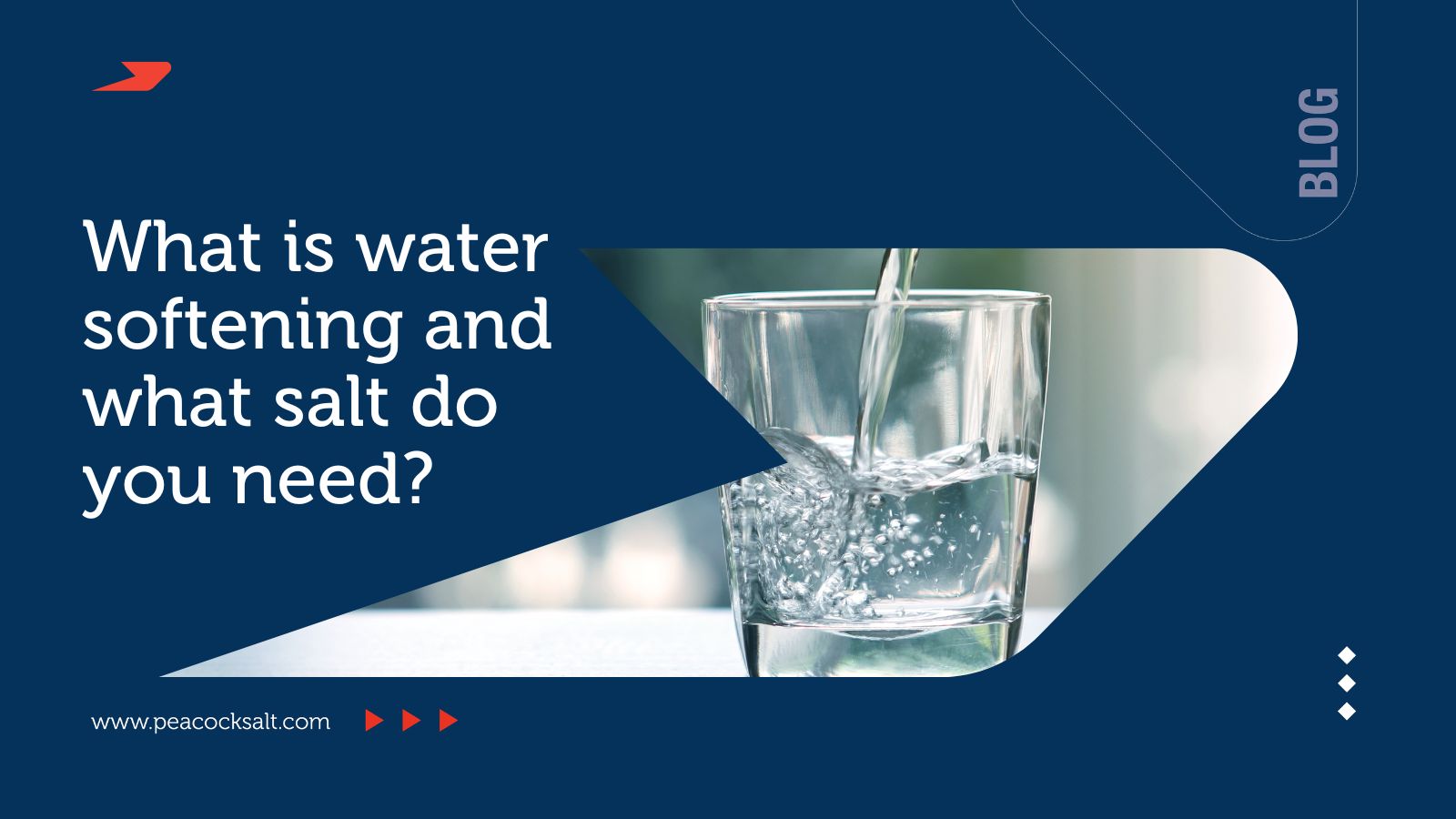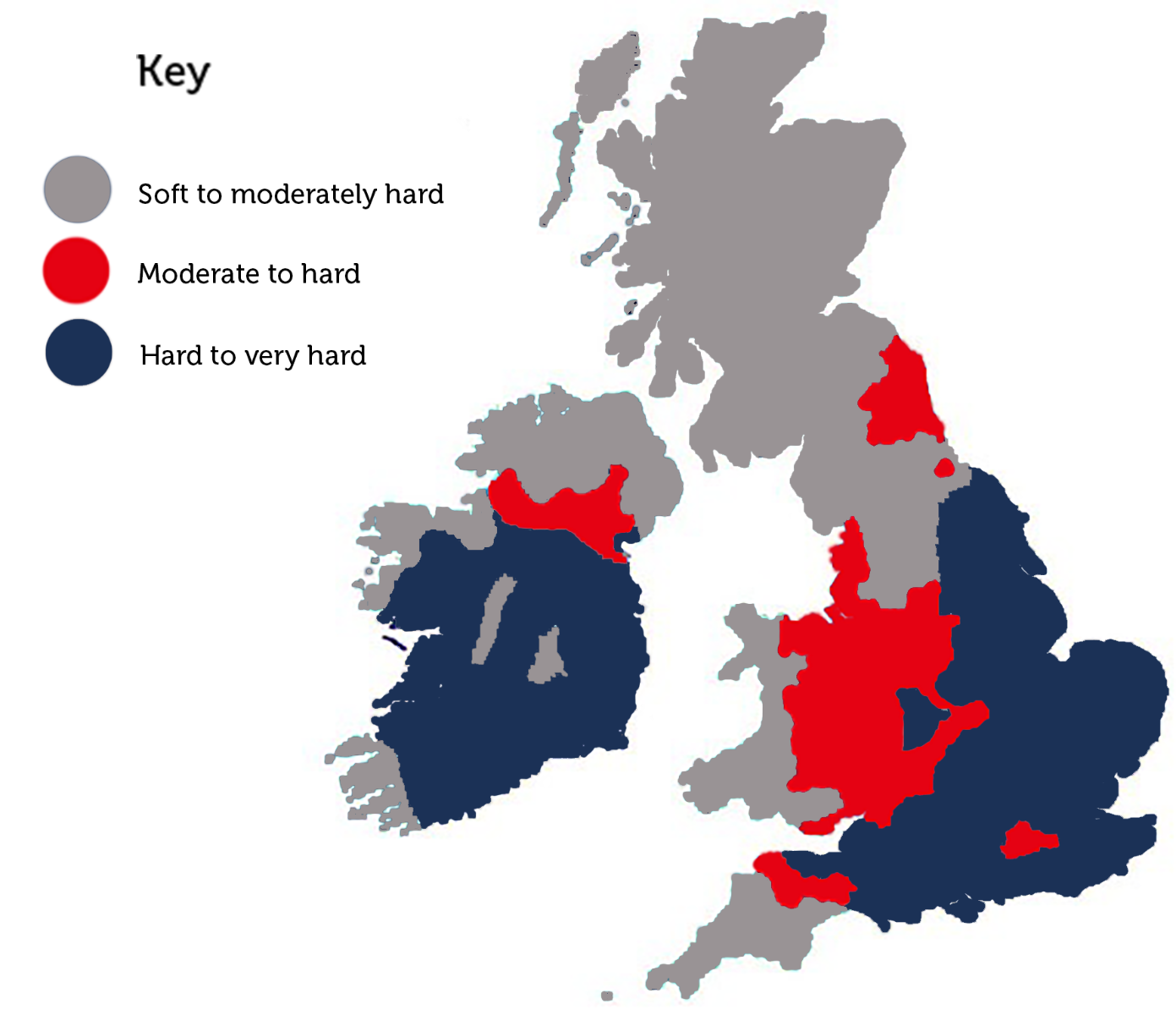
What is water softening and what salt do you need?
The hardness and softness of water. Unless you live or work in a region affected by hard water, there’s a good chance you won’t know much about the benefits of ‘softening’. At Peacock, we’re serious about salt and all of the wonderful things it can do – and water softening is just one of the many tasks we have the perfect products for. Allow us to tell you a little bit more.
What is the difference between soft and hard water?
Hard water is common across many parts of the UK, affecting commercial premises and homes across much of the South East of England, East Anglia, as well as parts of the Midlands and large parts of Ireland. From a chemical point of view, it’s water that has high mineral content, usually Magnesium or Calcium, and it’s created by rainwater falling and passing through porous limestone, chalk, or gypsum rock before it reaches our water systems.

Naturally occurring soft water is usually rainwater which has landed on a non-porous rock, such as granite, and therefore doesn’t have as high a mineral content.
But if minerals, generally speaking, are good for us – why do we need to soften our water?
What damage does hard water do?
There are a variety of problems that hard water can cause, ranging from affecting the condition of your hair and skin, through to making your appliances work less efficiently.
Your health
Currently, there is no evidence that hard water negatively impacts your health as such, but it is proven to dry out your hair and skin – which are well-recognised effects of high quantities of topical minerals. If you suffer from skin conditions related to lack of moisture, there is a good chance that softer water within your own home might help to some degree. Not to mention that the taste of hard water can be a little gritty – nowhere near as refreshing as a cool glass of soft water poured from the tap.
Plumbing infrastructure and appliances
We’ve all heard about limescale – the awful stuff that builds up in our dishwashers and other appliances. Hard water is a huge contributor to limescale build up – and this happens not just within appliances, but across heating systems, through your pipes, and inside your boiler. This goes for any type of premises, be it commercial buildings or within your home. A build up of limescale makes your system run less efficiently, can cause faults, and ultimately cost you money as the system works harder to heat the building and your water.
How do you soften water?
To soften the water within a building, you need a water softening system first of all. Depending on type, this system will house either water softening granules (lots of small resin beads), salt tablets (usually pillow shaped or circular), block salt (large white salt bricks) or for larger scale operations, even bulk PDV salt delivered via tanker. These products are charged with sodium, which in turn strips the hard water of its minerals, pouring out soft water. The salt is introduced accordingly to not only clean the resin beads but also recharge them with Sodium.
So, what’s the best salt for your water softener? There are several well known brands to choose from and we supply most of these. In recent years we introduced several new products to our water softening range to improve sustainability. The granular, tablet and block products in our AquaSalt range provide a competitively priced option, whilst still retaining superior quality. AquaSalt is a Grade A certified product and comes in at 99.4% purity, so you can be confident when introducing it into your water softening system.
What are the benefits of using AquaSalt?
The benefits of using AquaSalt in your water softening system, are:
- Increased lifespan across appliances and even central heating systems.
- Saving on consumables such as detergents and cleaners (for treatment and prevention of limescale).
- A more efficient boiler with softened water and most importantly – a less expensive energy bill and a greener home.
- Reduction of cleaning time around the house by preventing the build up of limescale.
- Improve dry skin conditions such as eczema.
- Prevent clothes from fading in the wash.
- An improved taste and texture of drinking water.
AquaGranules and AquaTablets are available in 10kg & 25kg, and bulk buy quantities. AquaBlock contains two 4kg block water softeners that will fit neatly into your water softening machine. Whether you’re a homeowner looking to stock up for their personal system or responsible for sizeable properties which require salt in bulk, you can find out more about the quantities, and varieties of AquaSalt here.





